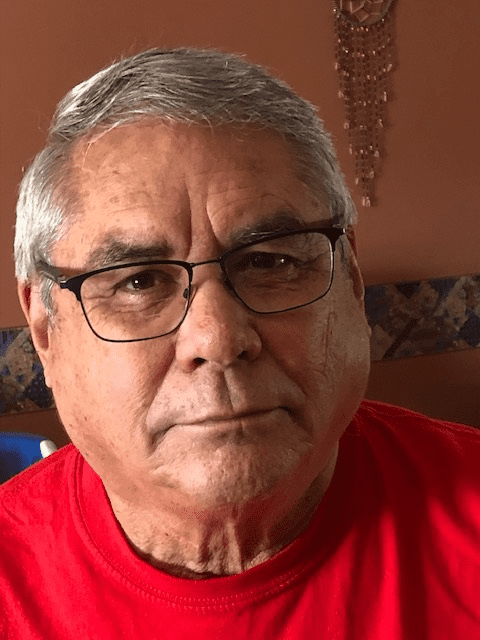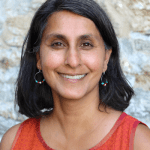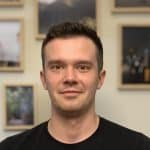
53rd Convention (2022)
Confronting Concentration in our Food System
With costs rising, numbers of farmers dropping and a corporate world thriving like we’ve never seen before, the NFU’s 53rd National Convention was about confronting concentration in our food system.
The hybrid Convention was held on-line via Zoom and in-person at the Park Town Hotel, in Saskatoon from 10AM-5PM (8AM-3PM Pacific) Thursday November 24 to Saturday November 26. The keynote address from Doug Cuthand, SK-based Indigenous Journalist was at 7pm SK on Thursday, November 24th.
Scroll down for details on panel speakers. Click here to view the convention schedule, updated as of October 27, 2022. Visit the NFU’s Youtube Channel and select Convention 2022 Playlist to watch recordings of panel presentations.
Keynote address: Doug Cuthand
Doug Cuthand says that he has made it his mission in life “to bridge gaps between all cultures and to educate the people of Saskatchewan and Canada on who we are as Indigenous people.” Doug was the host of a weekly current affairs show “Indigenous Circle” and now has a weekly column for Saskatoon’s Star Phoenix newspaper and the Regina Leader Post newspaper. In doing so, he successfully captures the current issues facing First Nations and Métis people of our province. In 1987 Doug began documentary work and started Blue Hill Productions. Over the years Blue Hill has grown to become one of the leading First Nations production companies in the country, with a long list of awards and accomplishments.

Thursday, November 24
Panel 1: Frameworks of Corporate Power
Panelists will illuminate mechanisms of concentration and how they work to increase the power of corporations in our food and agriculture system — and what farmers and other citizens can do about it.

Jennifer Clapp
Jennifer Clapp is an expert on the political economy of food security and sustainability in a global context. She has published widely on the impacts of financial actors in the global food and agriculture sector, the politics of trade and food security, and the social and ecological implications of corporate concentration in the agrifood system. She is currently a Canada Research Chair in Global Food Security and Sustainability and Professor in the School of Environment, Resources and Sustainability at the University of Waterloo, Canada. Her most recent books include Food, 3rd Edition (Polity, 2020) Speculative Harvests: Financialization, Food, and Agriculture (Fernwood Press, 2018), and Hunger in the Balance: The New Politics of International Food Aid (Cornell University Press, 2012). She is Vice Chair of the Steering Committee of the High-Level Panel of Experts on Food Security and Nutrition (HLPE) of the UN Committee on World Food Security, a member of the International Panel of Experts on Sustainable Food Systems (IPES-Food) and a Fellow of the Royal Society of Canada. Her interdisciplinary research has been recognized with numerous awards. She holds a PhD in International Relations and a MSc in International Political Economy from the London School of Economics and a BA in Economics from the University of Michigan.

Shefali Sharma
Shefali Sharma is the director of the Institute for Agriculture and Trade Policy (IATP) European office. From the global production of feed grains to meat processing and retail, her current work and publications focus on the economic, social and environmental impacts of the global meat and dairy industries. She continues to examine how international trade rules and global governance on food security and climate intersect with the sector. Shefali established IATP’s Geneva office in 2000 and led its Trade Information Project for several years. She has worked with and consulted for several other civil society organizations, such as the Malaysia-based Third World Network, as the South Asia coordinator of the Bank Information Center, based in Delhi, and ActionAid International. She has a MPhil from the Institute of Development Studies (IDS) in Sussex and a Bachelor of Arts in anthropology from the College of William and Mary.

Keldon Bester
Keldon Bester is a policy researcher and advocate based in Ottawa but originally from Calgary whose work focuses on the consequences of monopoly power at home and abroad. He is a co-founder of the Canadian Anti-Monopoly Project (CAMP), a think tank dedicated to anti-monopoly policy reform and making Canada’s economy more fair, free, and democratic. Keldon is also a Fellow at the Centre for International Governance Innovation (CIGI), and an independent policy consultant and researcher. Keldon has worked as a Special Advisor at Canada’s Competition Bureau, and as a Fellow at the Open Markets Institute in Washington, D.C.. Keldon holds a masters of public policy from the Harvard Kennedy School.
Friday, November 25
Panel 2: Wealth and Power in Key Sectors
Our panelists will each focus on a sector of agriculture, examining the concentration of power by global corporations involved in farm machinery, retail trade and seed sectors.

Kavya Chowdhry
Kavya Chowdhry is a researcher with ETC Group, an organization that works at the global political level to address the socioeconomic and ecological issues surrounding new technologies that could have an impact on the world’s poorest and most vulnerable people. Kavya is from India, has studied development and environmental governance and has previously worked on reviving traditional agriculture practices and forest foods in Odisha, India, and on the right to food and nutrition with FIAN International. Kavya is a lead author of ETC’s new report, Food Barons 2022: Crisis Profiteering, Digitalization and Shifting Power.

Henk Hobbelink
Henk Hobbelink is an agronomist by training. In the 1980s he worked with farmers in Peru on sustainable pest management and after that he worked with Dutch and European NGOs drawing attention to the importance of agricultural biodiversity for the future of farming. In 1990, he co-founded GRAIN with Renée Vellvé, and over the past three decades has helped the organisation grow into an international collective that works to support small farmers and social movements in their struggles for community-controlled and biodiversity-based food systems. Henk is the coordinator of GRAIN, and as such is responsible for the overall functioning and funding of the organisation as well as conducting research, writing and outreach activities.

Cathy Holtslander
Cathy Holtslander is the Director of Research and Policy for the National Farmers Union. In collaboration with NFU members, she authors briefs and articles that analyse and critique laws, programs and policies relevant to agriculture, farming and rural life, proposing alternatives that advance food sovereignty and agroecology. She has been advocating for sustainable and just farm policy since the early 1990s, with a particular focus on seed issues. She was a key organizer in the Saskatchewan class action suit against Monsanto and Bayer to stop GMO wheat and make them liable for GMO canola contamination of organic farms in the early 2000s. She co-edited Beyond Factory Farming: Corporate Hog Barns and the Threat to Public Health, the Environment, and Rural Communities, and her 1998 Masters thesis was a political biography of Annie Hollis, a leader in the prairie farm organizations that preceded the NFU. Since 2008, she and her partner have operated a certified organic grain farm near Mont Nebo, Saskatchewan.

Katie Ward
Now that you’re an NFU member, how do you put your ideas into action? The NFU offers lots of ways to participate – but it can be confusing! President Katie Ward will walk us through the many avenues available for you to bring your thoughts and ideas forward, learn and share your knowledge, bring your perspective to the conversation, and get to know and work with other members to make a difference in the world together. This presentation will sketch out a map to the NFU’s structure and processes that will help you get involved in the ways that work for you.

Dr. Amber Fletcher
Dr. Amber Fletcher is an Associate Professor and Academic Director of the Community Engagement and Research Centre at the University of Regina. Her research examines how gender and social inequality shape the lived experience of climate change through the lens of climate disasters (flooding, drought, and wildfire). Focusing on rural and Indigenous communities in the Canadian Prairie region, her work reveals the lived impact of inequality in the context of crisis. She is the lead researcher for a major study on the social dimensions of climate hazards in Saskatchewan’s farm, forestry, and First Nations Communities, and co-edited Women in Agriculture Worldwide: Key Issues and Practical Approaches (2016). In 2012 she spoke at the United Nations Commission on the Status of Women on the topic of rural women’s wellbeing. She is a past President of the Canadian Research Institute for the Advancement of Women (2018-19) and holds two Governor General’s medals from for her research and advocacy on gender equality in Canada. In addition to her university teaching, she is always interested in partnering with community and non-profit organizations with research questions or data needs.

Avram Alpert
Avram Alpert works to understand what values we can live by in a world as connected, chaotic, and potentially catastrophic as the present. He is currently researching for a new book about what it might mean to be wise in such a world, as well working on several related creative writing projects. He is the author of three previous books, most recently The Good-Enough Life. In addition to his writing, he is also deeply invested in developing institutions that connect the humanities to pressing political concerns. He is at present a Fellow at one such place, The New Institute in Hamburg. For his talk at the NFU Convention, he will discuss the ethical and philosophical arguments in favor of networks of collaboration as opposed to concentrations of power.

Pauline Streete
Pauline Streete is an Equity, Diversity and Inclusion (EDI) enthusiast. After a brief hiatus where she occupied the roles of Program Development Consultant and the Executive Director for local non-profit, she found her way back to the EDI space. Pauline acknowledges her love of EDI and professes it is a part of her DNA. She is currently the Senior Advisor on Equity, Diversity, Inclusion & Anti-oppression at the University of Regina.

Derek Johnstone
Derek Johnstone is Special Assistant to the UFCW Canada National President. He first joined the United Food and Commercial Workers in the mid-1990s as a retail meat cutter and learned the value of the union from the shop floor and more than 10,000 hours at the butcher’s block. Over the past 25 years, Brother Johnstone has served in various roles for the union, and is currently responsible for communications, education, and special projects. He also serves as administrator of the National Defence Fund (NDF).

Renata Woodward
Renata Woodward was a land trust practitioner who worked as a CEO of the Nature Trust of New Brunswick for 12 years. Currently she lives in Québec and works as a consultant who helps charitable organizations with engagement organizing, capacity building, fund-raising, land conservation, and policy development. She is a progressive leader, effective decision-maker, visionary, great communicator, and manager who can display sound judgment and bring the best out of a team of passionate and diverse people. She continues to work on advancing environmental protection in Canada. Her expertise lies within the realms of biodiversity, land conservation and organizational capacity building. She is passionate about Indigenous engagement and reconciliation, social justice, and ethical investing. She is a natural connector who wants to bring people together to work on “green” climate-just actions that will allow future generations to survive on our planet. Her education encompasses Natural Resource Management, Nursing, and international business and development.

Sam Bliss
Sam Bliss is a PhD Candidate at the Rubenstein School of Environment and Natural Resources at the University of Vermont, and he teaches in the department of Community Development and Applied Economics. Sam studies and participates in the production and distribution of food that’s not for sale in northern New England. He gardens, fishes, forages, dumpster dives, and shares food through the mutual aid collective Food Not Cops. He is a fellow of the Gund Institute for Environment, the Agroecology and Livelihoods Collaborative, and Research & Degrowth, and he is president of DegrowUS.

Dr. Tammara Soma
Dr. Tammara Soma MCIP RPP is an Assistant Professor at the School of Resource and Environmental Management (Planning program) at Simon Fraser University and Research Director of the Food Systems Lab. Originally hailing from Indonesia, she conducts research on issues pertaining to food loss and waste (FLW), food system planning, food access, and the circular food economy. Dr. Soma is a Co-editor of the Routledge Handbook of Food Waste, and co-founder of the International Food Loss and Food Waste Studies group, a global network of FLW researchers and practitioners. Dr. Soma was selected as a committee member of the US National Academies of Science and co-authored the consensus study A National Strategy to Reduce Consumer Food Waste. In 2021, the Food Systems Lab was recognized as one out of the four women-run projects that are redefining agriculture by the Canadian Organic Grower. She was also named in Chatelaine magazine as one of the 10 inspiring Canadian women saving the environment and a Style Canada 30 Changemakers. She is a registered professional planner and a proud mother of three.

Darrin Qualman
Darrin Qualman is the NFU’s Director of Climate Crisis Policy and Action. In his recent work with the NFU, Darrin is the author of several reports including Tackling the Farm Crisis and the Climate Crisis: A Transformative Strategy for Canadian Farms and Food Systems (2019); Imagine If: A Vision of a Near-Zero-Emission Farm and Food System for Canada (2021); and Nitrogen Fertilizer: Critical Nutrient, Key Farm Input, and Major Environmental Problem (2022). In addition to his current position, he served other roles with the NFU between 1996 and 2010 including Director of Research. He has been active in supporting many NFU campaigns including genetically modified wheat, the struggle to retain the Canadian Wheat Board, and work to keep the genetically modified hormone rBGH out of Canadian dairy supplies. He is also the author of the 2019 book Civilization Critical: Energy, Food, Nature, and the Future which as recently been translated and released in China. He farmed with his family for two decades just south of Saskatoon. And he has academic degrees in history, biology, and political studies.

Julia Smith
Julia Smith’s short tenure as the NFU’s VP of Policy was cut short by wildfires and floods last year, but she continues to be an active and passionate member of the NFU Livestock Committee. She also serves as the Executive Director and Project Manager of BC’s Small-Scale Meat Producers Association. She is a determined and outspoken advocate for decentralizing food systems, and meat production in particular. She started off as an urban vegetable farmer but things quickly got out of control after she took a Permaculture Design Course while attending UBC. Before she knew it, she and her partner were raising livestock and had a butcher shop in Vancouver. They moved to the Nicola Valley in order to expand their farming operation where they now live off-grid raising critically endangered Red Wattle hogs and beef cattle. Climate change and extreme weather events have recently moved her into an Emergency Management role helping the community and local farmers and ranchers affected by wildfires, flooding and debris flows. In her spare time she is finishing up that degree that got sidelined by farming all those years ago and is active on the local Search and Rescue team.

Rebecca Sweetman
Rebecca Sweetman uses regenerative, permaculture techniques to steward a small, biodiverse farm in Prince Edward County, called Hawkridge Homestead. Experimenting with anti-capitalist reciprocity, 4-season growing in an unheated poly tunnel, and cover cropping with Asian greens, Hawkridge Homestead has been a site of radical resistance and resilience working to learn and unlearn best practices for a delicious collective future.

Hannah Kaya
Hannah Kaya is a farm worker living primarily in Wakefield, Quebec, on unceded Anishinaabe territory, where she spent the last two seasons working as a farm hand on a small scale, organic, diversified vegetable farm. She recently joined NFU staff as Farm Worker Organizer. Hannah has worked in different pockets of the food system including restaurants, community gardens, and food justice movements. Like many new entrants into agriculture, Hannah was first drawn to farming as a way to heal her alienation from non-human nature and to provide tangibly to communities in need. And, again like many new entrants, she both instantly fell in love with the work and came to know its less romantic aspects. She is inspired to help grow a food system that provides accessible, healthy food while respecting ecological limits and providing dignified work for the hands that move the soil. She has been invigorated by the incredible conversations that she’s had with the Farm Worker Working Group. Members of that group, as well as her colleagues and co-workers in Wakefield, have helped form the perspectives she brings to this panel.
Thanks to our 2022 Convention sponsors!

Farm Legacy Sponsorship Partners
Public Service Alliance of Canada (PSAC)
United Food & Commercial Workers (UFCW)